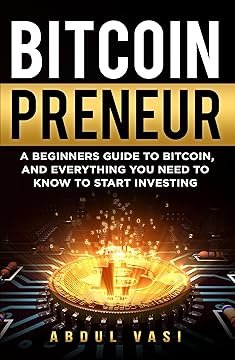Advertisement:
With over 25 years of experience as a business consultant, Abdul Vasi has helped countless brands grow and thrive. As a successful entrepreneur, tech expert, and published author, Abdul knows what it takes to succeed in today’s competitive market.
Whether you’re looking to refine your strategy, boost your brand, or drive real growth, Abdul provides tailored solutions to meet your unique needs.
Get started today and enjoy a 20% discount on your first package! Let’s work together to take your business to the next level!
We all dream of building wealth. But here’s the thing: wealth isn’t just about making money; it’s about keeping it. And if there’s one golden rule to wealth-building that’s stood the test of time, it’s this: “Never lose money.” Sounds simple, right? But the truth is, playing defense with your money is an art form, one that requires strategy, patience, and a bit of wisdom from the school of hard knocks.
Today, we’re diving deep into the story of how playing defense with your money is the real secret sauce to building wealth. Spoiler alert: it’s not as glamorous as stock tips or get-rich-quick schemes, but it’s the kind of wisdom that will save you from financial heartbreak.
The Defensive Playbook: A Story of Two Friends
Let me take you back to two friends of mine—let’s call them Ravi and Sameer. They both started their careers at the same time, earning roughly the same salary. But their financial lives went down two very different paths.
Ravi was the classic go-getter. He was always looking for the next big thing—the hot stock tip, the risky investment that would double his money overnight. Sameer, on the other hand, was the tortoise to Ravi’s hare. He wasn’t flashy, and his mantra was simple: “I’m not going to lose money.”
Ravi invested in startups, speculative stocks, and even cryptocurrency when it was at its peak. He won some, but he lost more. Sameer? He played defense. He invested in solid, reliable funds, avoided high-risk ventures, and always kept an emergency fund. Guess who had the last laugh?
Years later, Sameer quietly built a comfortable nest egg, while Ravi found himself constantly chasing his losses. The lesson? Building wealth is less about the big wins and more about avoiding the big losses.
“Never Lose Money”: A Lesson from Warren Buffet
I remember reading something that stuck with me. Warren Buffet, the Oracle of Omaha, has two rules of investing:
- Never lose money.
- Never forget rule #1.
It sounds almost too simple. But think about it: if you lose 50% of your money in an investment, you need a 100% gain just to break even. Losing money sets you back twice as hard as gaining money pushes you forward.
Once, I got sucked into a “can’t-miss” investment. It was a shiny new tech startup, and all the financial news outlets were raving about it. I threw in more than I should have. Fast forward a few months, and the company went belly-up. The money I lost wasn’t just gone—it was a reminder that taking unnecessary risks without playing defense can derail your financial goals faster than you think.
Pro tip: If Warren Buffet lives by the rule of never losing money, it’s probably worth listening to.
Defense Wins Championships: The Financial Wisdom in Sports
If you’ve ever watched a championship-level sports team, you’ll know one thing: it’s defense that wins titles. Sure, scoring points is flashy, but if you can’t stop the other team from scoring, all your hard work goes down the drain. The same principle applies to money.
Playing defense with your money isn’t about being overly cautious or never taking risks—it’s about being strategic. It’s knowing when to sit out, when to move forward, and when to protect what you’ve already earned.
The Story of Suresh: The Risk-Taker Who Forgot to Play Defense
I met a guy named Suresh a few years ago. Suresh was the type of person who believed that if you weren’t risking everything, you weren’t living. His financial strategy? Go all in. He invested in high-risk stocks, leveraged real estate deals, and even threw money into exotic investments like wine and art. And sure enough, he made a killing early on.
But then came the crash.
Suresh hadn’t played any defense. He had no diversification, no safety net, and no plan for when things went south. In a matter of months, he lost nearly everything he’d worked for. The moral? High returns mean nothing if you don’t have a plan to protect them.
Diversify: Don’t Put All Your Eggs in One Basket
One of the best ways to avoid losing money is by diversifying your investments. It’s the equivalent of spreading out your risk so that one bad bet doesn’t wipe out your whole financial future. We’ve all heard the phrase “don’t put all your eggs in one basket,” but how often do we really follow it?
I’ll admit, I’ve been tempted. There was a time I was obsessed with a certain tech stock (I won’t name names, but let’s just say it was a certain fruit-branded company). I had this vision of cashing in big and retiring early. But then I remembered Sameer’s story and thought better of it. Instead, I spread my money across different sectors—tech, healthcare, real estate, and even a bit in bonds. Did I make millions overnight? No. But I also didn’t lose millions, and that’s the point.
Pro tip: Diversification is like insurance for your investments. It’s not flashy, but it works.
Cash Is King: The Importance of Liquidity
Another key to playing defense with your money is keeping some of it liquid. I know, I know—cash doesn’t earn much, but it doesn’t lose much either. Having a healthy emergency fund is like having a defensive line in football—it protects you from the unexpected hits that life throws your way.
One time, I had a massive car repair bill that came out of nowhere. It was one of those “I-need-a-new-engine” moments, and I remember thinking, “Thank goodness I’ve got some cash set aside.” That emergency fund saved me from going into debt, which could’ve easily set me back financially for months, if not years.
Pro tip: Always keep at least 3-6 months of living expenses in an easily accessible savings account. It’s not exciting, but it’s safe—and safety is everything when you’re playing defense.
Learn from Your Mistakes (and Others’ Too)
We all make mistakes. I’ve had my fair share of financial blunders, but the key is to learn from them and not repeat them. The same goes for learning from others’ mistakes. You don’t have to go broke yourself to realize that losing money is bad—sometimes, watching someone else’s fall is all the warning you need.
Take Ravi and Sameer’s story. Ravi’s roller-coaster financial life could have been avoided if he’d played defense like Sameer. And Sameer? He’s the perfect example of why slow and steady wins the wealth-building race.
Pro tip: Make a list of your financial mistakes, and promise yourself you won’t make them again. And while you’re at it, learn from the mistakes of others—it’s cheaper that way.
Embrace the Boring: Slow and Steady Wins the Race
Here’s the thing—wealth-building is boring. That’s right, I said it. It’s not about the adrenaline rush of stock market highs or the thrill of risky ventures. True wealth-building is about consistency, discipline, and yes, a bit of boredom.
Sameer didn’t become wealthy by taking wild risks. He did it by consistently investing, saving, and avoiding unnecessary losses. It wasn’t glamorous, but it worked. Sometimes, the smartest move you can make is to embrace the boring aspects of personal finance—because that’s where the real magic happens.
Final Thoughts: Protect What You’ve Earned
Building wealth isn’t just about offense. Sure, making money is important, but keeping it is the real challenge. By playing defense—avoiding unnecessary risks, diversifying your investments, maintaining an emergency fund, and learning from your mistakes—you can protect what you’ve earned and set yourself up for long-term success.
Remember, the key to wealth isn’t hitting a home run every time—it’s avoiding the strikeouts. Or, in the words of Warren Buffet: “Never lose money.”
So the next time you’re tempted by the next big thing, think back to Sameer, Warren Buffet, or even Ravi, and ask yourself, “Is this going to help me build wealth—or lose it?” Play defense, my friend. Your future self will thank you.
And if all else fails, just remember: cash, patience, and a solid defense are better than any flashy financial touchdown you’re chasing.




